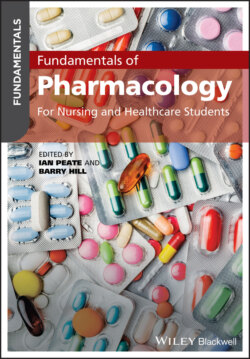Читать книгу Fundamentals of Pharmacology - Группа авторов - Страница 20
The Code of Conduct
ОглавлениеThe NMC is the nursing and midwifery regulator for England, Wales, Scotland, Northern Ireland and the Islands. It exists to protect the public and it does this in a number of ways. The NMC sets the standards of education, training and conduct that nurses and midwives are required to adhere to so as to deliver high‐quality healthcare. The NMC ensures that nurses and midwives keep their skills and knowledge up to date (through revalidation; NMC, 2017) and uphold the standards of the Code (NMC, 2018a). Where an allegation is made about a nurse's standard of practice or behaviour, the NMC have processes in place to investigate those allegation: they take action if concerns are raised about a nurse's fitness to practice.
The Code sets out in detail the professional standards that nurses must uphold and all nurses, regardless of setting, are required to align their practice and behaviour to the Code. The values and principles that are set out in the Code are not negotiable or discretionary.
All nurses will exercise professional judgment in their work as they offer care to people, including the care that is associated with medicines and medicines management: each nurse is accountable for their actions and omissions. Nurses are required to uphold the Code within the limits of their competence associated with the contribution they make to overall care provision. Practising within your sphere of competence and your scope of practice is key to the underpinning principle of the Code – to protect the public – and must be upheld at all times.
Figure 1.2 The Code. Source: Olympus America, Inc. With permission.
The Code is made up of a series of statements that taken together imply what good practice looks like. It makes clear that the interests of patients and service users come first, that care is safe and effective and that it promotes trust through professionalism (see Figure 1.2).
Clause 18 of the Code is specifically related to medicines. Nurses are required to advise on, prescribe, supply, dispense or administer medicines that are within the limits of their training and competence, the law, and in relation to NMC guidance and other relevant policies, guidance and regulations. In order to do this, the nurse must:
Prescribe, advise on, or provide medicines or treatment, including repeat prescriptions (only if the nurse is suitably qualified) if the nurse has enough knowledge of that person's health and is satisfied that the medicines or treatment serve that person's health needs.
Adhere to appropriate guidelines when providing advice on using controlled drugs and recording the prescribing, supply, dispensing or administration of controlled drugs.
Ensure that the care or treatment that the nurse advises on, prescribes, supplies, dispenses or administers for each person is compatible with any other care or treatment that the person is receiving, including (where possible) over‐the‐counter medicines.
Take all steps to keep medicines stored securely.
Wherever possible, avoid prescribing for yourself or for anyone with whom you have a close personal relationship.
It should be noted that prescribing is not within the scope of practice of everyone on the NMC register. Nurses who have successfully completed a further qualification in prescribing and recorded it on the NMC's register are the only people on the register that can prescribe.
